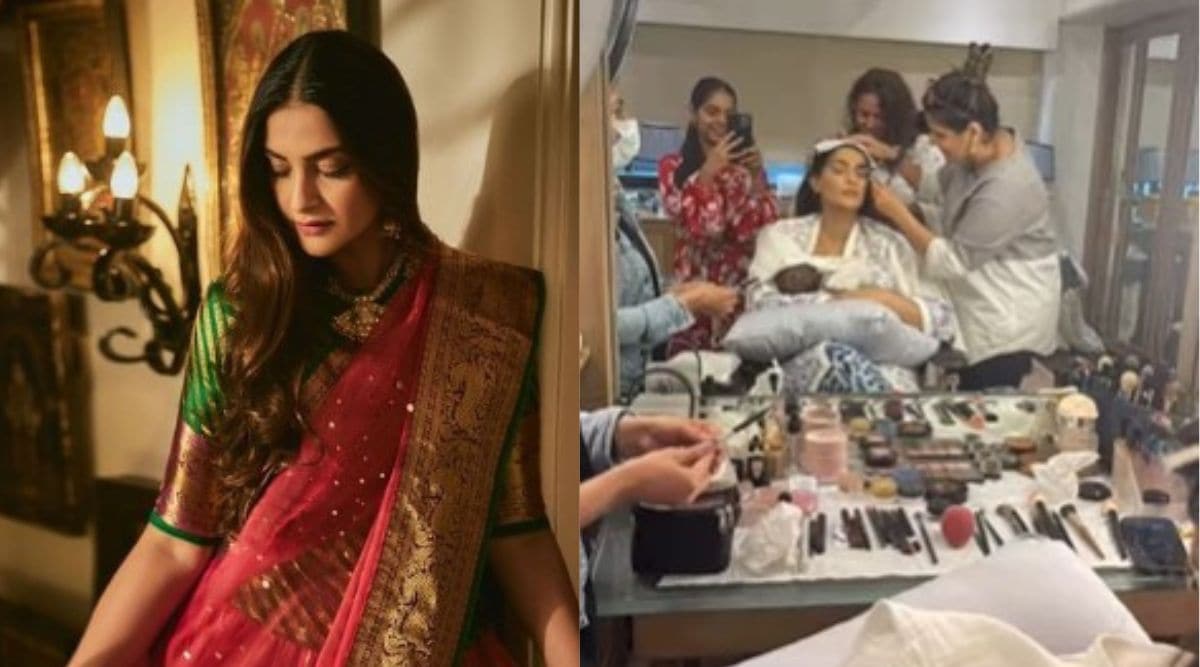Set against the backdrop of a fractured period in Indian history, Dostojee is an intimate portrayal of a friendship that’s warm and soothing. Two eight-year-old boys, who are neighbours and share a deep friendship, revel in little joys of life oblivious to the rising tide of communalism. Their innocence and love for each other are untouched by the atmosphere of growing mistrust around them. Providing a beautiful and befitting landscape to their story is an idyllic India-Bangladesh border village in West Bengal, with acres of expansive, lush farming land and the river Padma flowing nearby.
As the film opens, they are seen engaging in one of the greatest pleasures of childhood — trying to outdo each other in throwing stones in the Padma. The lives of Safikul (Arif Shaikh), son of a Muslim weaver, and Palash (Asik Shaikh), son of a Hindu priest, are intertwined as they play and go to school together. They even have the same tutor. Yet, their families rarely interact with each other though their homes are separated by a boundary wall made of cane.
In the aftermath of Babri mosque demolition and the Bombay blasts of the early 90s, religious tension reaches this remote village too. The Muslim community wants to build a ‘Chhota Babri Mosque’ and raises money for it. The Hindus plan to have the idols of Ram and Sita consecrated in the local temple. These developments are perplexing. In one scene, Palash’s mother even articulates her confusion over the push towards worshipping Ram as that had not been prevalent in West Bengal.
Though vaguely aware of these developments and simmering uneasiness at home, Safikul and Palash have other concerns. They have to organise money to buy toktoki (a small metal toy that makes sound); bunk classes to visit a fair; and perfect Amitabh Bachchan’s iconic pose from the Deewar poster. While they lose a kite fight, instead of being sad they wonder if their kite has floated across to Bangladesh.
This is what makes childhood special. One can build a world of one’s own, a safe place, by not comprehending and caring for the complexities around. Together, the boys enjoy a play on Ramayana as well as Eid festivities. Much to their wonder, they find actors playing the roles of Ravan, Ram and Sita smoking together, backstage. The boys are told by the actors that they are all friends but pretend to be enemies on stage to make a living. There is a socio-political message there. But the movie does not try hard to underline it.
At the heart of Dostojee (that’s how the boys call each other fondly) is their innocence. That infuses warmth and freshness into the narrative. It provides a foil to the undercurrent of communal tension that threatens to upend the tranquility of rural life. Chatterjee, also the film’s writer, never shifts his attention from Safikul and Palash — not even when they have a fall-out and don’t talk to each other for a brief period — though he makes us aware about how the world around them is changing.
The movie gently touches upon a range of issues. While love and acceptance are the overarching themes, it is also about the pain of losing someone a dear one. Grieving has many forms and the way a heart copes with loss can be unpredictable. At times, it latches on to fragile memories or simple things that one has left behind.
Chatterjee’s choice of actors, most of them non-professionals, works very well for the narrative. Their earthiness adds an interesting touch to the story. There are times though certain scenes appear staged. But that’s a minor quibble as the two young lead actors do the heavy-lifting of telling this sensitive story with their convincing performances. They make us believe in the purity of their emotion, uncorrupted by a polarised society. They also make us hope that love can make the world a better place.
Dostojee movie cast: Arif Shaikh, Asik Shaikh
Dostojee movie director: Prasun Chatterjee
Dostojee movie rating: 3 stars





